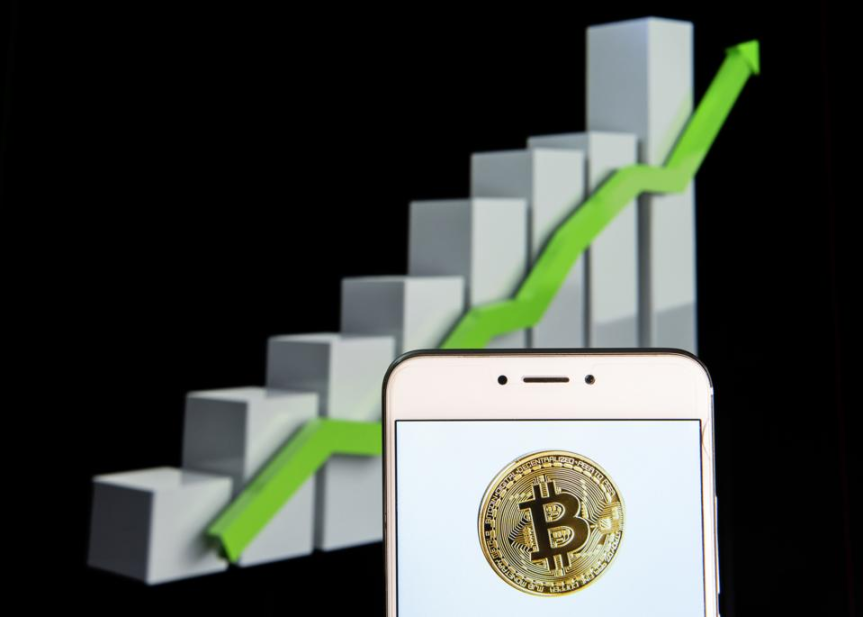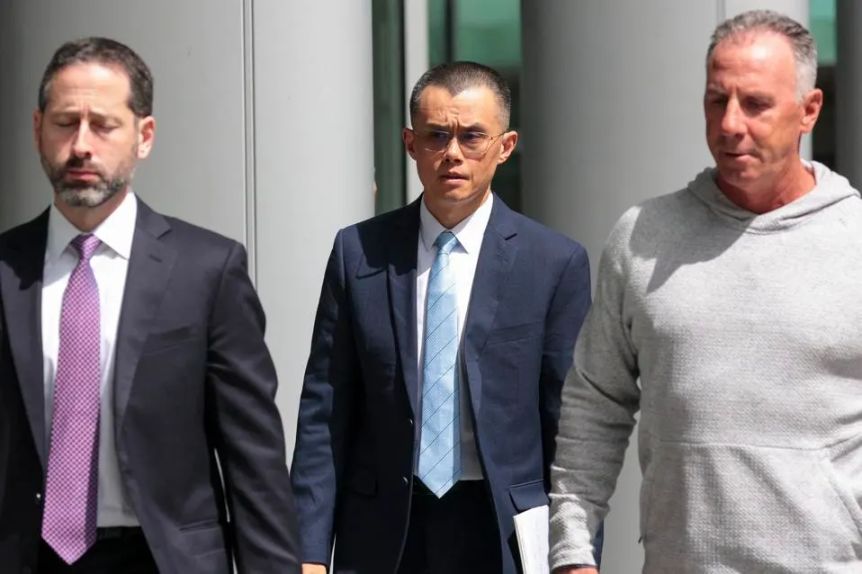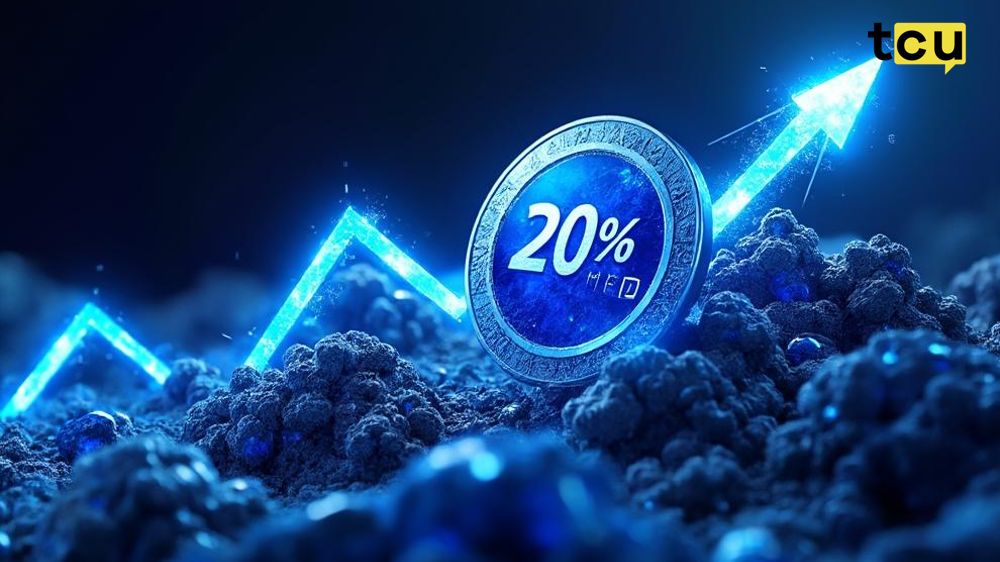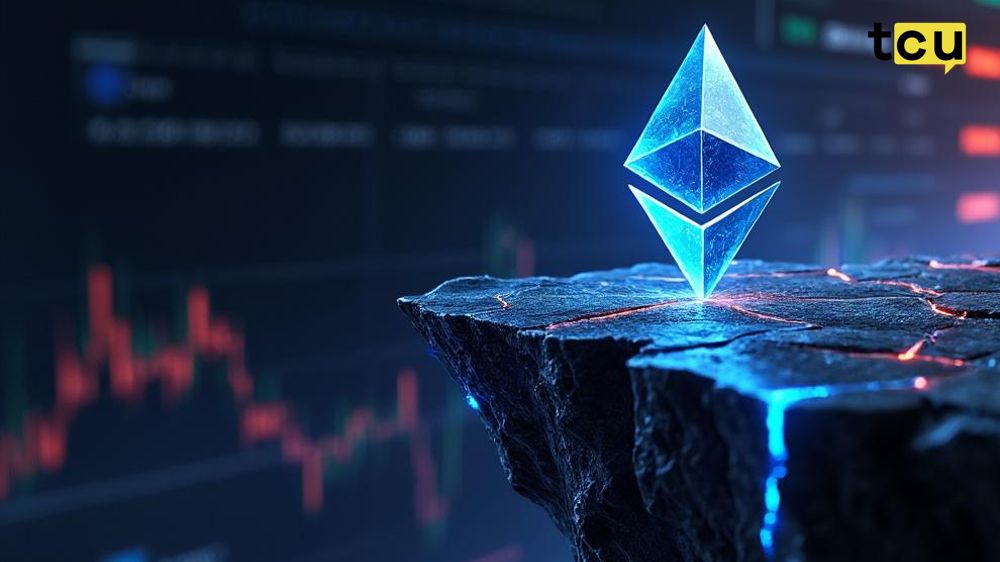Forbes: The "Five Major Dramas" in the Crypto Space in 2025
Written by: Becca Bratcher, Forbes
Translated by: Saoirse, Foresight News
Original Title: Forbes: The Five Most Controversial Crypto Moments of 2025
From multi-billion dollar hacks to meme coin launches at the presidential level, 2025 has been a year for the crypto sector marked by tricky entanglements with politics and power—both worrisome and highly instructive. As the fourth quarter of 2025 unfolds, five moments stand out in particular—they vividly demonstrate how the crypto industry continually tests the boundaries of public trust and regulatory tolerance.

Bitcoin hit an all-time high in 2025, but the industry remains mired in controversy. (Illustration: Miguel Candela / SOPA Images/LightRocket via Getty Images, licensed by Getty Images)
January: Trump Meme Coin Debuts
At the very start of 2025, an unexpected move by the incoming U.S. president drew widespread attention.
Just hours before the inauguration, Donald Trump launched the official meme coin TRUMP. The token debuted at around $1, soared to over $70, and then quickly plummeted. Shortly after, First Lady Melania Trump also launched her own token, MELANIA, which followed a similar price trajectory as TRUMP. As of now, TRUMP is trading at around $7, while MELANIA hovers near $0.13.
These tokens were promoted as "celebratory digital collectibles," but their launch immediately sparked questions about ethics and legality. Previously, Trump had always been dismissive of crypto, but now he has repositioned himself as an industry "supporter"—actively courting the growing crypto voter base and pledging to make the U.S. a global digital asset hub. Meanwhile, his family business, World Liberty Financial, has also expanded its footprint in the crypto sector.
Within just a few hours, the combined market cap of these two meme coins approached 11 billions USD, turning what began as a simple political branding exercise into the first major controversy for the crypto industry in 2025.
February: The Largest Financial Theft in History
Just a month later, public trust in crypto security suffered a heavy blow.
Dubai-based crypto exchange Bybit disclosed that hackers had stolen about 1.5 billions USD worth of ETH from one of its offline cold wallets. This unprecedented security breach sent investors into a panic, and blockchain analytics firm Elliptic confirmed that this was the largest single theft ever recorded in both digital and traditional finance.

Bybit Exchange (Illustration: Thomas Fuller / SOPA Images/LightRocket via Getty Images, licensed by Getty Images)
Subsequent investigations revealed that the data breach was linked to a hacker group backed by the North Korean government. This finding instantly elevated what might have been dismissed as a "routine exchange security flaw" to a matter of geopolitical gravity.
May: U.S. President Rewards Top TRUMP Meme Coin Holders
In May, news broke that triggered a "small but significant" surge in TRUMP meme coin trading volume—President Trump announced that only the top holders of the TRUMP token would be invited to a formal dinner at his private golf club. This "exclusive pay-to-play" model effectively turned the token into a "bidding tool": anyone holding enough tokens could gain private access to the president through this method.
Attendees included Tron founder Justin Sun, who had previously invested over $18 million in TRUMP tokens and had faced SEC charges (later suspended).
This event sparked dual controversy: protesters gathered outside, while inside, the event drew close scrutiny from Congress. Although the White House insisted that Trump’s assets were under "blind trust management" (meaning assets are managed by a third party without his direct involvement), on-chain blockchain analysis showed that Trump-related entities controlled about 80% of the remaining token supply and had earned over $320 million in transaction fees from token trades.
U.S. Representatives Adam Smith and Sean Casten, along with 35 other House Democrats, sent a letter to the Department of Justice requesting an investigation into Trump’s actions: whether offering "dinner with the president" to top TRUMP token investors constituted bribery, or violated the U.S. Constitution’s "Emoluments Clause" (which prohibits federal officials from accepting unauthorized payments from foreign governments or individuals).
They noted in the letter that this event "opens the door for foreign influence over U.S. policy decisions, may constitute corruption, and potentially violates the Emoluments Clause. This is just the latest example of President Trump disregarding ethical norms, exacerbating conflicts of interest, and using his office for personal gain."
October: The "10.11" Incident
Fast forward to October: blockchain analysts discovered that an anonymous trader suddenly shorted Bitcoin and Ethereum just minutes before President Trump announced new tariffs on China. Trump’s tariff announcement directly triggered the largest "liquidation cascade" in crypto history (where a massive number of leveraged positions are forcibly closed due to price crashes, further accelerating the downward spiral).
It was reported that before the market stabilized, this anonymous trader had already profited $160 million. Observers, including The Kobeissi Letter, publicly questioned: "Did someone have advance knowledge of the tariff announcement?"
There is currently no direct evidence of "insider information leaks," but the incident has once again raised public concerns about the digital asset market—issues of information asymmetry and political influence on the market may be far more serious than imagined.
October: A "Profitable" Pardon
Just weeks later, another controversy erupted: President Trump pardoned Binance founder Changpeng Zhao.
Changpeng Zhao had pleaded guilty to "anti-money laundering violations" in 2023 and served four months in prison; Binance itself paid over $4 billion in fines for the case.

April 30, 2024, former Binance CEO Changpeng Zhao leaves the U.S. Federal Court in Seattle, Washington. Changpeng Zhao, founder and former CEO of the world's largest crypto exchange Binance, was sentenced to four months in prison after pleading guilty to violating anti-money laundering laws. (Photo: Jason Redmond / AFP via Getty Images, licensed by Getty Images)
This pardon not only erased Zhao’s criminal record but also cleared the way for his return to the crypto industry. The White House explained the move as an effort to correct "regulatory overreach during the Biden administration."
However, a BBC report further fueled the controversy: Zhao’s companies had previously partnered with "businesses related to the Trump family’s crypto projects." This connection greatly heightened public suspicion of a "quid pro quo" behind the pardon.
Objectively, the pardon further cemented the current U.S. administration’s "alliance" with the digital asset industry, while also raising deeper questions: To what extent will political influence shape regulatory outcomes?
Conclusion: Just Another "Normal Year" in Crypto
Together, these five events made 2025 yet another "headline year" for the crypto industry. Despite ongoing controversy, this year was far from the "worst period" in the industry’s history.
The meme coin debut in January blurred the line between "hype" and "governance"; the Bybit hack in February exposed vulnerabilities even in the most trusted systems; the May dinner turned "token holding" into "political access"; the October trading scandal revealed how "speculation" and "timing" can manipulate the entire market; and the presidential pardon that same month made 2025 a year in which the crypto industry’s "legitimacy and ethical boundaries were repeatedly challenged."
Every year in crypto brings new innovations, challenges, breakthroughs, and controversies—2025 is no exception.
Disclaimer: The content of this article solely reflects the author's opinion and does not represent the platform in any capacity. This article is not intended to serve as a reference for making investment decisions.
You may also like
Bitcoin price hits $111K November high but bear market fears persist
Pi Expands into AI, TRUMP Charts Explosive Comeback, BlockDAG’s Hybrid Tech Solves the Blockchain Trilemma!

CZ buys 2 million ASTER tokens, price jumps 20%

Ethereum price analysis warns of critical $3,596 support level

